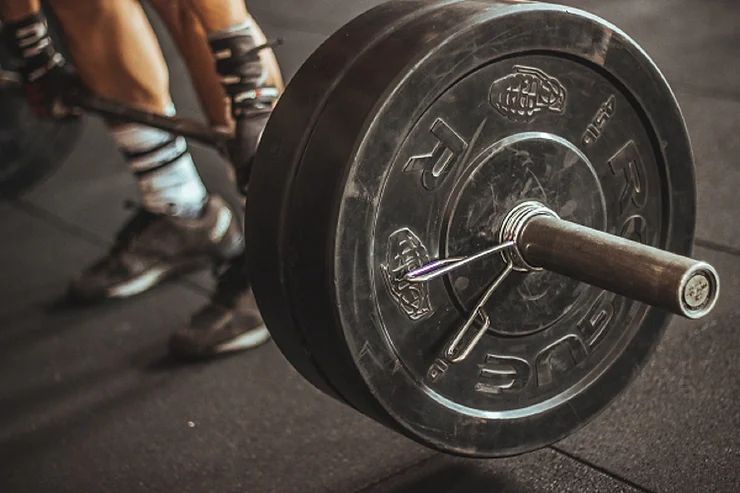In a perfect world, you would be able to train as long as you wanted, with no decline in energy levels, and have maximum muscle recovery; however, it’s not a perfect world, and if you exercise regularly or want to start, you want to make the most out of the time you spend! Supplements are key to optimizing your potential and giving you the best opportunity to reach your goals in athletics.
However, there are a lot of different types of supplements out there, and it can be overwhelming. It is important to know what each one does and how it will affect your body – there are a lot of useless supplements and some can even harm you. Below is a list of supplements that are the best and highest recommended to gain lean muscle, receive optimal recovery, and fight fatigue.
Protein
One of the most crucial parts in muscle growth is feeding your body enough protein, and while it’s very possible to consume enough protein by eating food rich in it–such as fish, chicken, beef–it can be a struggle to eat enough in those forms. This is where protein powders come in! There are several different types of protein powders, the three most commonly used in fitness are whey, casein, and soy.
- Whey: An animal-based, high-quality protein, which contains all of the essential amino acids. Whey is the fastest absorbing protein, making it one of the most popular used in weightlifting – this is perfect for a pre-workout and immediate post-workout supplement.
- Soy: Another complete protein containing all of the essential amino acids, however, it is plant-based rather than animal-based. Soy is absorbed in an intermediate rate – it also contains many antioxidants that help muscle recovery and overall health that Whey and Casein don’t contain.
- Casein: A milk-based protein, contains many amino acids as well – Casein has the slowest absorption rate, making it perfect for continually feeding your body protein over an extended amount of time – such as when you are sleeping.
In combination with strength training, consuming complete protein powders will help increase lean body mass, muscle recovery and strength in young healthy adults.
Side Effects
Consuming protein powders from trusted brands is likely safe and will have no side effects unless overconsumption. Overly using these products can cause mild side effects such as bowel movements, nausea, bloating, cramps, and gas.
Creatine
The most effective ergogenic nutritional supplement currently available to athletes and gym enthusiasts, Creatine Monohydrate is the most extensively studied, as well as effective, nutritional aide.
Creatine is actually a naturally made substance (phosphocreatine) within our bodies which helps you produce more energy when lifting heavy objects. By taking Creatine as a supplement, you are increasing your stories of phosphocreatine, which in turn gives you more ATP (Adenosine triphosphate the primary carrier of energy in cells).
Our ATP levels normally become depleted after a few seconds of intense athletic performance, however by having high stores of Creatine in your body, your ATP levels will last longer, allowing optimal performance.
Side Effects
According to the National Library of Medicine, there is no scientific evidence that short- or long-term use of creatine monohydrate has any detrimental effects on otherwise healthy individuals–with the correct dosage.
Branded-Chain Amino Acid (BCAA)
Unlike Creatine Monohydrate, BCAAs are not naturally produced by our bodies, instead, we have to get them from the food we eat. In a normal and healthy diet, everyone consumes BCAAs every day from foods that are usually rich in protein.
BCAA consists of three different amino acids: leucine, isoleucine, and valine. These three amino acids enhance muscle protein recovery after intense workouts in several ways:
- Increasing protein synthesis rate.
- Decreasing protein degradation rate.
- Recovery from soreness.
- Recovery from endurance exercise.
BCAA supplements can be very beneficial–if you are not consuming enough high-quality protein (containing BCAAs) within your diet.
Side Effects
Taking BCAA supplements is generally safe and without any negative effects within the correct dosage.
Beta-Alanine
Unlike BCAAS, Beta-Alanine is a non-essential amino acid, meaning it is not used by your body to synthesize proteins. Instead, it increases levels of Carnosine, a compound that helps exercise performance by reducing the accumulation of lactic acid. With the reduction of lactic acid build-up within your body, you are able to get a few more reps in than you would have before. Beta-Alanine has shown significant results in lean muscle growth when combined with creatine – An eight-week training study showed that taking beta-alanine every day can help increase lean body mass and recovery rate.
Side Effects
Taking high levels of beta-alanine can cause paraesthesia, a sensation of tingling on your face, neck, and hands. However, this is completely harmless, usually only lasting a few minutes, and can be avoided by refraining from excessive dosage.
Another possible side effect is the loss of taurine (another amino acid) levels. This is because beta-alanine can compete against taurine within your muscles.
Summary
A lot of supplements do nothing, some don’t work as they are advertised by marketers, and some can even be dangerous to your health. Always do your research before putting something in your body, and always use reputable brands.
Supplements can and will help improve lean muscle growth, muscle recovery rate, and decrease fatigue–however, without a healthy diet and regular exercise they won’t help your body. In order to achieve athletic goals, good nutrition and exercise programs are first and foremost.
These are top and best athletic supplements, and when combined with adequate exercise and a healthy diet, your body will thrive.






